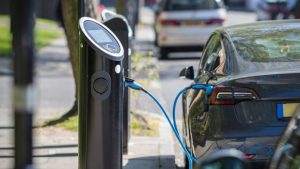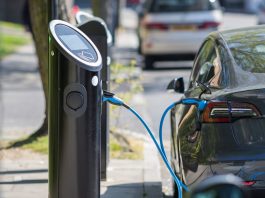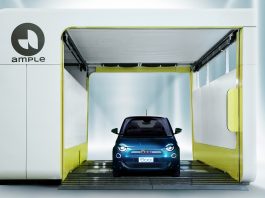The UK Government has announced funding for new charging technologies, which means electric vehicle batteries could power homes and save on bills.
Households could power their home appliances due to the development of bidirectional charging, which enables electricity stored in electric vehicle batteries to flow back into the grid or homes and workplaces, which can then be used to power other devices.
This builds on existing smart charging technologies, where EVs can be charged when electricity prices are lower overnight.
How can we use electric vehicle batteries for other purposes?
Families could then use these Vehicle-to-Everything (V2X) technologies to save money on their bills by selling the electricity back to the grid when prices are higher.
Businesses could also benefit from the V2X technologies by storing electricity in their fleets of EVs and using it to power their operations later.
These technologies will also help make it even easier to rely on renewable technologies such as solar panels, with less need for fossil fuels to provide for surges in demand by allowing stored renewable energy to be sold into the grid instead.
Dr Marco Landi, Head of Technology and Innovation, Electrification Services at JLR, said: “We are delighted to be collaborating on this project with partners and the UK government to be able to accelerate and pioneer V2X technology.
“This funding will drive our work to make charging simpler, greener and cost-effective, which is key to our all-electric future.”
Four projects will kickstart this new initiative
Four projects are receiving a share of £4.8m of government funding to support their work testing and implementing electric vehicle batteries for other purposes.
The successful companies are:
- Hangar19 Ltd in Chelmsford will demonstrate a three-socket bidirectional charger, making a wider range of EVs available for energy flexibility and bidirectional charging;
- 3ti Energy Hubs Ltd in Leatherhead will combine a quick-to-deploy bidirectional charging hub with a solar canopy and electric vehicle batteries in recycled shipping containers, which can make access to bidirectional charging available in more destinations, including vehicle depots;
- Otaski Energy Solutions Ltd in Gateshead will trial their bidirectional EV charger to enable fleet EV operators to access energy flexibly, which could deliver savings in line with electricity supply and demand surges; and
- Electric Green Limited in London will work with QEnergy to trial wireless V2X technology with a fleet of 20 delivery vehicles at Royal Mail.

Transport Minister for Technology and Decarbonisation Anthony Browne commented: “We’re continuing to support drivers, and this innovative new development is the next step in levelling up our charging technology, which will benefit many households across the country.
He concluded: “This government has already spent over £2bn in the transition to electric vehicles, and our charging network is growing at pace, with 44% more public charge points than this time last year, meaning drivers can charge more easily than before.”
The programme is part of the overarching up to £65m Flexibility Innovation Programme, supporting the efficient and flexible use of electricity within the Department for Energy Security and Net Zero’s £1bn Net Zero Innovation Portfolio (NZIP).









